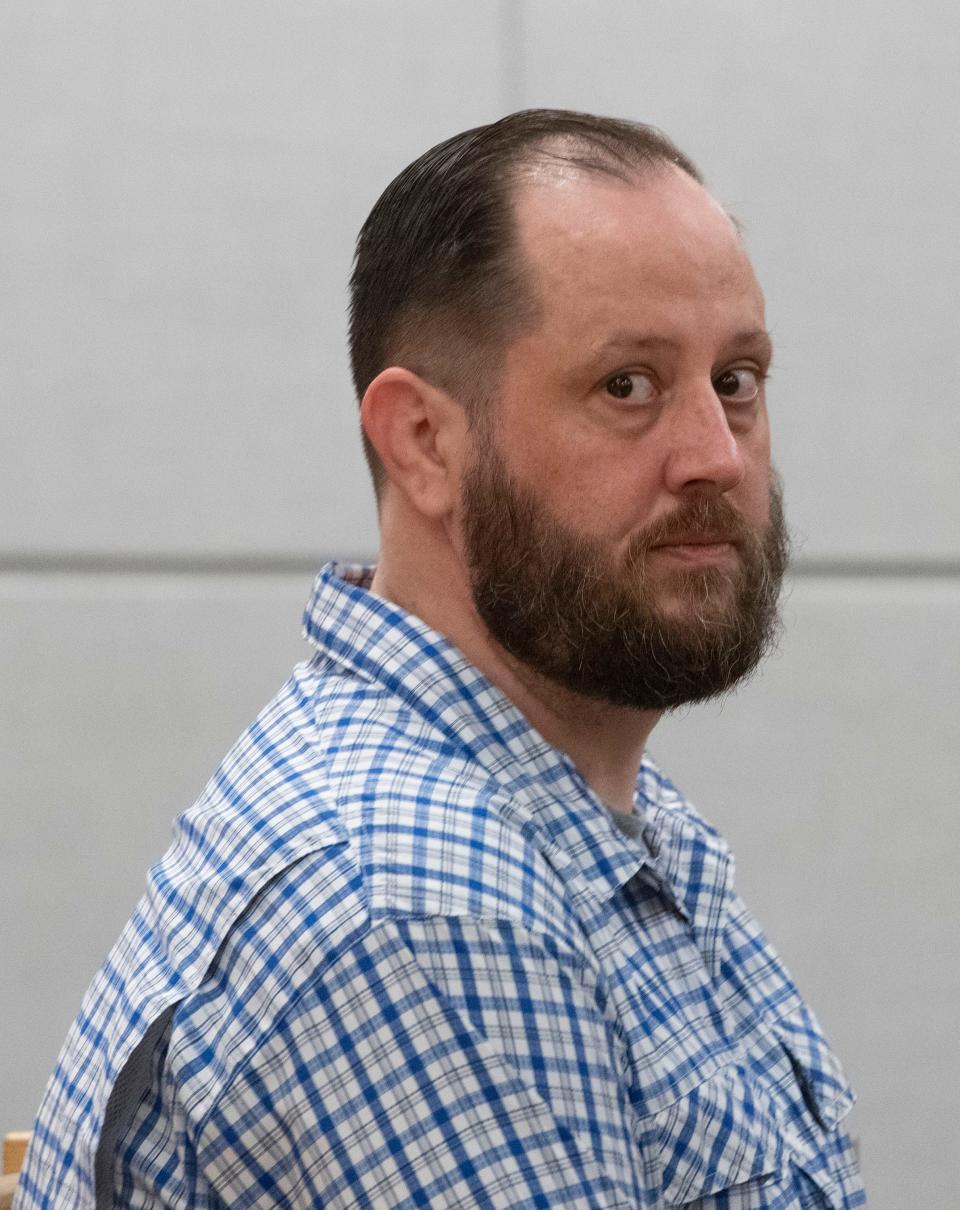After attempted murder acquittal, Pensacola man working to leave court supervision
It's been nearly a year since a Pensacola man began his conditional release plan related to attempted murder charges, and the judge assigned to his case says he's complying with the court's orders.
Circuit Judge Coleman Robinson found 37-year-old Charles Watts not guilty by insanity for his attempted first-degree murder charge back in 2020 when he allegedly attacked his girlfriend with a hatchet. Since the acquittal, Watts has been out of jail and working on a Lakeview Center plan as part of a conditional release.
"Mr. Watts, according to Lakeview, it looks like you're doing the things we've ordered you to do and actually even a little more than that," Robinson told Watts during Tuesday's status conference. "I encourage you to continue what you're doing. Make sure you're doing the right thing, and it sounds like you are."
Hatchet attack: Pensacola man faces attempted murder charge after hatchet attack
Once Watts returns to court for his six-month checkup on March 5, 2024, his defense attorney, Patrece Cashwell, may argue that the court should terminate her client's conditional release if he continues complying with the court's orders.
If so, Robinson said he would need "more information" regarding Watts' time at Lakeview, saying whether it's "an additional evaluation (or) a formal report."
What did Charles Watts allegedly do on Oct. 12, 2020?

Watts and his girlfriend started arguing inside a Pensacola home at about 2:15 p.m. on Oct. 12, 2020, after Watts accused the woman of kidnapping his twin boys, according to his arrest report. The report noted the children had not lived in Florida nor with Watts for "several years."
During the argument, Watts retrieved a hatchet and used it to strike the woman five times in the head, according to the report. The woman ran outside and Watts followed, at which point Watts' mother became involved in the confrontation.
Watts' mother later told Pensacola police officers she heard screaming and went outside to investigate. She told police she saw her son and his girlfriend struggling over the hatchet in the yard and ran toward them.
With help from a neighbor, Watts' mother eventually took the hatchet away from him.
'They took a hatchet to him': From 'flesh collectors' to double juries, Pensacola prosecutor's 34-year career was a doozy
Why did a judge find Charles Watts not guilty by insanity?
On July 19, 2022, Cashwell and Assistant State Attorney Matt Gordon submitted a document to the court that stated both parties agreed to stipulate Watts was insane at the time of the alleged attempted murder. The document says that Watts suffered from a schizoaffective disorder causing acute psychosis.
"The defendant was under a delusion which included included a belief that (his girlfriend) had killed his two sons and had been sex trafficking her daughter," court documents say. "As a result of his psychosis, the defendant attacked (his girlfriend) inside his home with a lightweight Gerber-brand hatchet."
The stipulation says both attorneys believe that Watts "did not know what he was doing, or its consequences," therefore asking for a judge to order Watts' acquittal by insanity.
Roughly one month later in August 2022, Robinson found Watts to be not guilty of attempted murder by insanity and ordered his placement at Lakeview under a conditional release plan.
This article originally appeared on Pensacola News Journal: Charles Watts complying with conditional release after hatchet-attack
